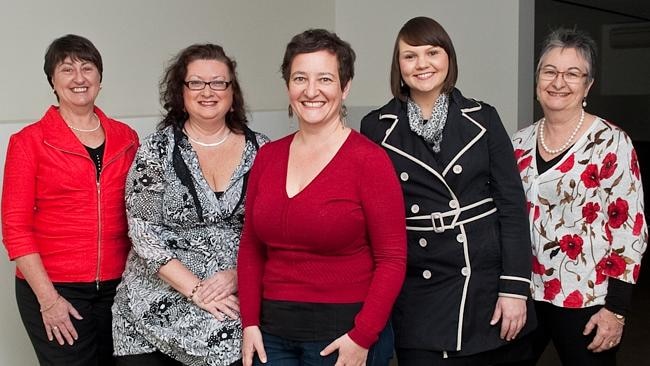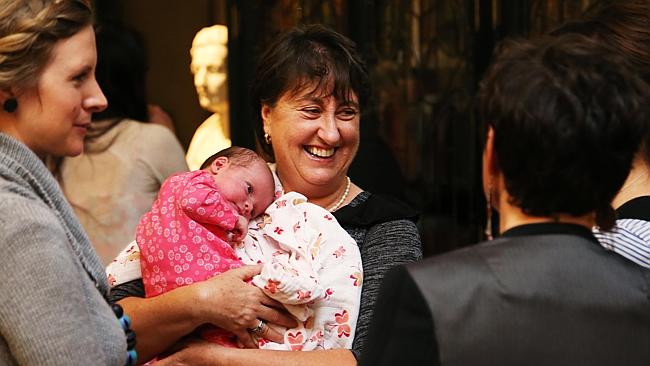The reality of teleworking: 'I know what my staff do minute by minute'
MAUREEN Shelley is a self-described "control freak" who monitors everything her employees do. But she doesn't care if they skive off during work hours. Is she the world's best boss?

MAUREEN Shelley knows what her employees are doing every minute of every day.
She also knows that they spend office hours getting their cars serviced, and taking their grandmothers to the dentist.
But Ms Shelley doesn't care.
The chief operating officer of copy writing business The Copy Collective is frank about what it's like to run a company staffed by people working from home - and why not everybody is up to the task of teleworking.
The business has five Australia-based employees, including the company's two directors, and it employs a further 83 independent contractors across six countries.
All staff work within a cloud system that keeps tabs on everything they do - what files they work on, who they email and who they call.
Ms Shelley also receives a daily and weekly report detailing how much work each person has done.
"Not only is there complete transparency [about what everyone is working on], there is digital monitoring and people can't escape that."
She admits she's "a bit of a control freak".
"Literally I know what my people do minute by minute. If wanted to spend all my life watching them I could. But you do have to trust them to get along with the job and do it."
Ms Shelley also knows her staff members don't perform at their peak all the time.
"People are human and all humans make errors and mistakes. We all skive off a bit from time to time. We all have days where you might not be 100 per cent, you might just be 60 per cent. That is very clear to me in the monitoring.
"As an employer we just cut them slack. You know what, you're not always on your A game."
Her employees use their office hours to do personal chores.
"People do take their mother to the dentist, put their car in for service, attend their grandchildren or children's activities.
"They do do that during office hours but our focus is on the work being done, and if it's being done to a standard and in a timely manner."

Ms Shelley - who has also managed more traditional office environments - says the output is virtually the same with teleworkers and office workers.
"If you work in an office you can look around and see people doing busywork. They're at their computer, they're present but they're not actually working."
Her independent contractors are easier to manage because "if they don't work they don't get paid".
They are subject to the same sort of monitoring as salary employees, even during training.
"It costs $1000 to train someone so we have $83,000 tied up in having people on our books and we can't afford having anyone that isn't up to scratch."
The training program - a webinar that is similar to a Google hangout - tracks how much time people spend interacting with the screen.
"If they're checking their emails or playing Candy Crush we can see. Last training we did have someone whose [screen time] was 17 per cent. If he's not paying attention when we're giving away free training then we won't be giving him any work, which may seem harsh."
Working under such conditions doesn't suit everyone. Ms Shelley has hired staff who "didn't really get it" and she had to let them go after three months.
In fact, the employees she does hire are judged on their attitude not their skills. They're given training in areas where they need development.
"It hasn't been a conscious decision to employ older people but four of our five staff are over 40. One of them identifies as having a disability. And all the stats on older workers and people with disabilities is that they're more committed workers."
This style of management is easier to achieve in a small business, but the Copy Collective believes its business model would work on a larger scale.
"There's a company in Europe we aspire to be like. They have 600 employees and 2000 contractors and they run the business on the same model we do."
Ms Shelley knows that recent high profile cases of managers - such as Yahoo CEO Marissa Mayer - who have rejected teleworking have made other business owners wary.
"There's a bit of a trend against it because they don't get the team-based work they used to.
"I just think you have to be smarter than that. Bums on seats isn't effective working."
This week is the Department of Communications' National Telework Week



